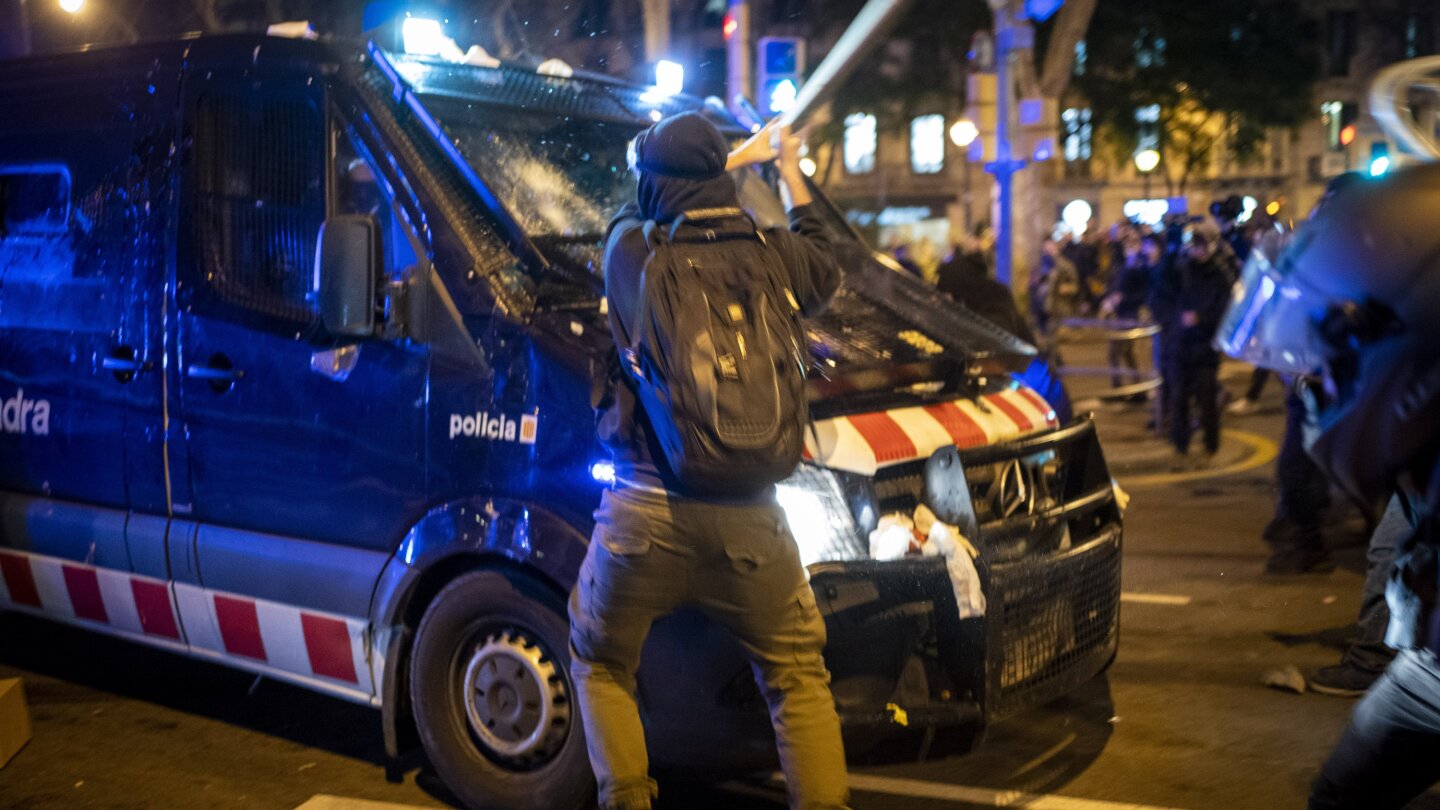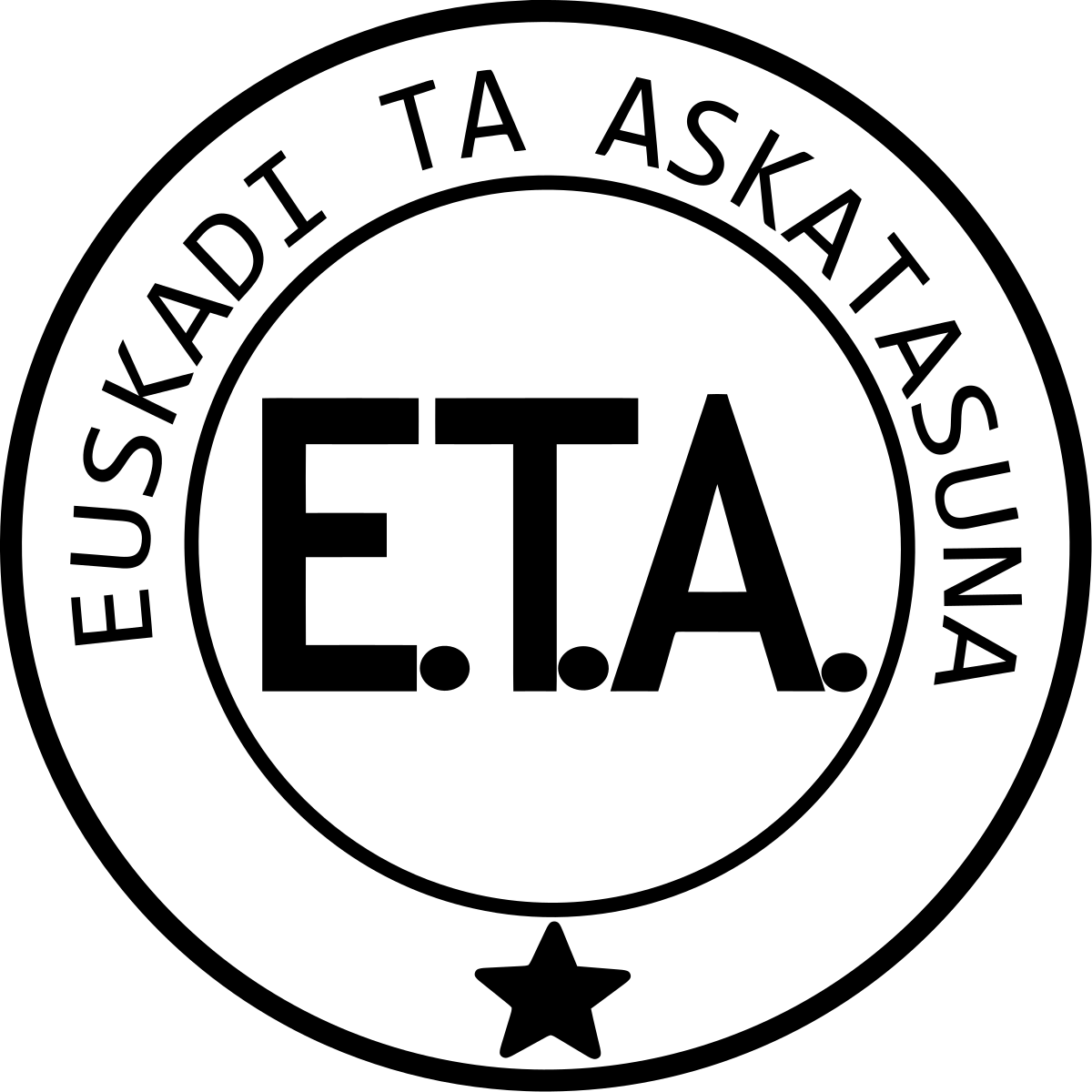
Spain arrests 80 in 3 nights of riots over rapper's jailing
Protests over the imprisonment of a rapper convicted for insulting the Spanish monarchy and praising terrorist violence have morphed for the third night in a row into rioting.
The protests began peacefully late Wednesday in dozens of Spanish provincial capitals and other towns in the northeastern Catalonia region, home to the rapper Pablo Hasél. But as the evening wore on they turned violent, with rioting, impromptu barricades made from trash containers and fires, and damage to shops.
In Madrid, Barcelona and smaller cities, anti-riot police fired rubber or foam bullets at baton-charged protesters, who threw objects at officers and set trash containers alight. Some used overturned motorbikes to block streets.
In the Spanish capital alone, police arrested 19 people, including six minors. Emergency services assisted 35 injured anti-riot officers and 20 others, including protesters and people who passed by and were caught in the melee.
In Barcelona, 29 people were arrested and at least eight were injured and sent to hospitals, the regional emergency service said Thursday. The night before, a young protester lost an eye night as a result of a foam projectile used by the regional Mossos d'Esquadra police to dispel the protesters.
Some of the gravest riots on Wednesday night took place near the Lleida prison, where Hasél was taken Tuesday. Police arrested him at a university building where he had barricaded himself 24 hours earlier to draw attention to his arrest.
The rapper and his supporters say that Hasél's nine-month sentence for writing a critical song about former King Juan Carlos I and dozens of tweets that judges said glorified some of Spain's extinct terrorist groups violates free speech rights.
Potentially deepening the tension, court authorities in the northeastern region of Catalonia said Thursday that Hasél lost a recent appeal and is looking at an additional prison sentence of 2 1/2 years for obstructing justice and assault in 2017. The sentence can be appealed again before a higher court.
His legal situation has drawn considerable public attention because it comes on the back of a string of other artists and social media personalities that have been put on trial for violating Spain's 2015 Public Security Law, which was enacted by a previous conservative-led government and criticized by human rights organizations.
Spain's left-wing coalition government wants to change the country's criminal code to eliminate prison terms for offenses involving freedom of speech, especially when it comes in the form of artistic expression. The junior member of the coalition, the far-left United We Can (Unidas Podemos) party, has said it will work to grant a pardon to Hasél.

EXPLAINER: Why Spaniards are rioting over rapper's jailing
MADRID (AP) — Riots broke out in many Spanish cities this week during freedom of speech protests over the jailing of a little-known rapper for insulting the Spanish monarchy and praising terrorism.
Hasél has ruffled many feathers and irked authorities over the past decade. In the insults to the monarchy, he described the former king as "a mafia mobster, pillaging the Spanish kingdom."
In tweets, he referred to a late member of the defunct armed Basque terrorist group ETA as having been "exterminated by the torturing state." In other compositions, he praised other terror groups and advocated bomb attacks on Spanish state TV and Basque Socialist politician Patxi López.
While some saw this as exercise of his right to free expression, the law opined otherwise.
Under fire is the Public Security Law, drawn up by a previous conservative government, which many felt was designed to curtail anti-government protests and protect police.
The law has been used against other rappers and tweeters — even puppeteers. Hasél's case triggered criticism from Amnesty International and spurred a petition by some 200 cultural figures, including film director Pedro Almodóvar and actor Javier Bardem.
The coalition government, sensing the growing pressure, promised to amend the criminal code to eliminate prison terms for offenses involving freedom of speech.
With more protests being called, the Spanish government and police forces are tasked with calming the situation on the streets and easing the political debate.
Socialist Prime Minister Pedro Sánchez government has defended the police and slammed the violence, but he must contain the split with his far-left coalition partner. United We Can's avoidance of publicly condemning the violence has fueled opposition calls for the expulsion of its leader from government, which could topple the coalition and trigger fresh national elections.
This law seems like a fascist's wet dream to me.







